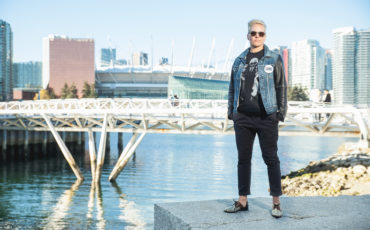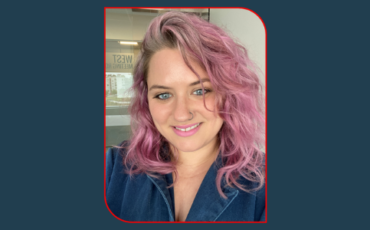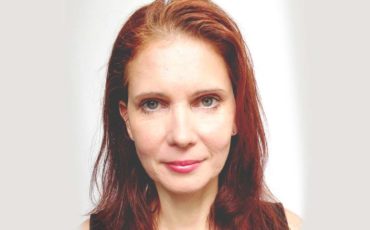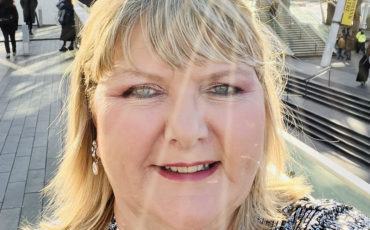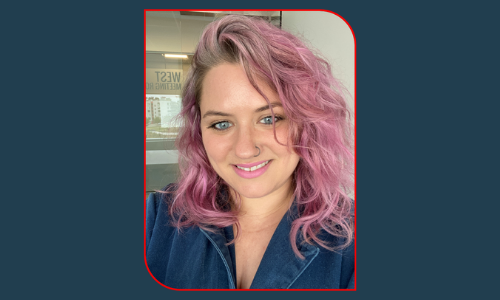
Spotlight: Group Equity, Diversity & Inclusion (EDI) Specialist Sara Martin
Responsible for creating a global strategy and implementing innovative plans to drive equity, diversity and inclusion throughout the different Cinesite Group studios, Sara Martin sits down with us for a chat on the importance of her role at Cinesite and within the industry.
To start, could you give us an introduction to your background and how you came to work with Cinesite
Sara: I started at Cinesite 11 years ago. I had been living in Calgary and working at an engineering firm, but I found that that was not the job for me. I came to a kind of crossroads where I felt that I needed something different, something a bit more fun. After some life changing reflection, I decided to move to Vancouver and find a job which took me in a different, more enjoyable direction.
That led me to start looking at animation studios and with me ending up finding a job as a receptionist, then being promoted to facilities manager. An animation studio suited me so much better than my previous sector because I am surrounded by creative, upbeat people who nurture my interests. And here I am today as the EDI specialist!
How did your previous role as Facilities Manager lead into your EDI role?
I was the go-to person at Cinesite, so to speak, and people would come to me to share their happiness, their problems, everything. That is certainly one reason why I care so deeply about the crew and understand the impact my role will have. Everyone has a different voice, a different story, and I have always enjoyed that one to one personal interaction where you learn more about someone not just by hearing but by listening.
As a person who grew up having relationships with people from diverse backgrounds – that experience has allowed me to gain a sense of empathy and compassion for others. It has given me a sense of being able to care about things even if they didn’t necessarily affect me directly. I was able to see where I had privilege, where others did not, which allowed me to develop a lens for social justice. I’ve always had that sense of needing to do, “the right thing” and stand up for others who don’t have the privilege of standing up for themselves. It’s who I am and what I believe; that’s really important to me.
I am so lucky to work with people who are open minded, excited to implement new ideas and ways of thinking. They provide so much support to nurture my growth. Whatever our jobs are at the studio, we’re all just trying to do the best we can and at the same time be innovative and try new things. I’ve really felt supported in my growth, but also in my mistakes.
Why do you think it’s important to have someone dedicated to ED&I at every company?
I think it’s important for so many reasons. The goal is that people can come to work and be in a space where they have psychological safety. They can just come and work, be who they are and make good art; that is the goal. I also think it’s important to have somebody who’s dedicated to this role, because when people aren’t, it’s the kind of role that can happen off the side of their desk. They’re trying to make something happen but they can’t put the time and dedication into it that is really needed to make it the priority it needs to be for everybody.
How do you aim to support Cinesite employees in the workspace?
I want to help people by giving them the tools they need to have meaningful interactions that are rooted in respect and inclusion. My goal is to make EDI an ingrained part of our culture, so that people know exactly how to interact and work together from an inclusion mindset.
A lot of this work is uncomfortable. When you’re dealing with difficult topics that perhaps certain people don’t understand or are unfamiliar with, it is important to give people the tools so that all situations can be handled with care and respect. We all have privilege in certain areas of our lives and by leaning in and accepting our discomfort and educating ourselves we can then ask the question, “How can I support somebody who maybe doesn’t have this privilege that I do?” There are going to be a lot of uncomfortable conversations which need to happen in order to actually make change, which I’m confident we will be able to do together.
Why does diversity matter?
When people feel a sense of cultural and psychological safety, they are able to be their best selves. This allows people to have a platform to tell their stories- from a range of viewpoints, cultures and perspectives. That range of perspectives leads to richer storytelling and better understanding of the world we live in and that’s important not just in creative industries like ours, but in all areas of society.
If we’d asked you, age 6, “What do you want to be when you grow up?” What do you think you’d have said?
I would have said an actor or a lawyer. I always love to debate everything! My family tried to convince me at a very young age that I’d be a good lawyer. I was more convinced I would be a better actor, as I loved inhabiting my favorite movie characters. Sarah from Labyrinth was my longest running role!
Tell us one thing you couldn’t live without.
Video- calling. It makes being away from my family way easier. I don’t think I would have made it through the lockdowns without it!
Oooh and pickles! When I was a kid, my mom used to have to hide the pickles from me because I wouldn’t just eat them all, I would drink the pickle juice from the jar. Weird, I know!

